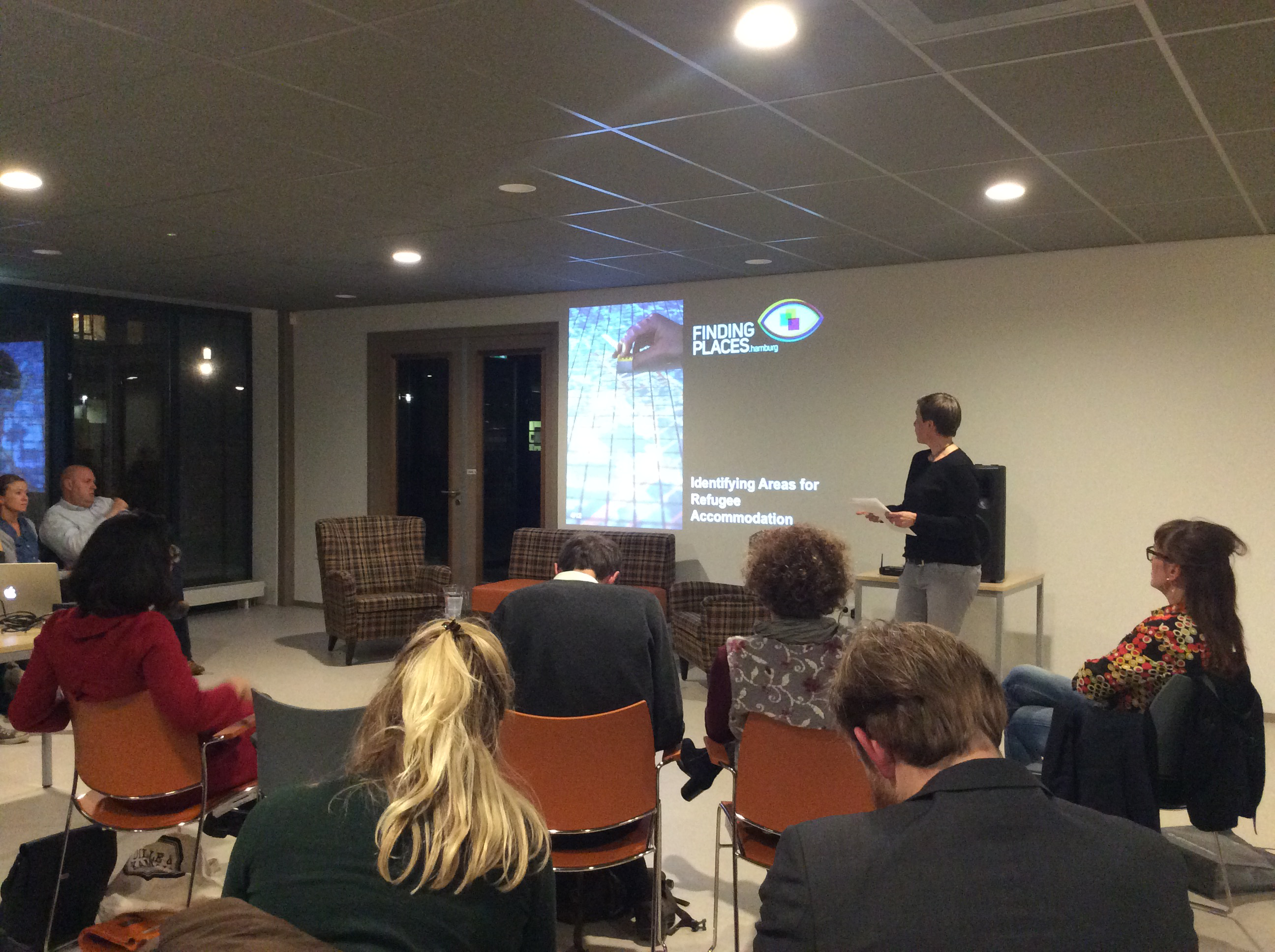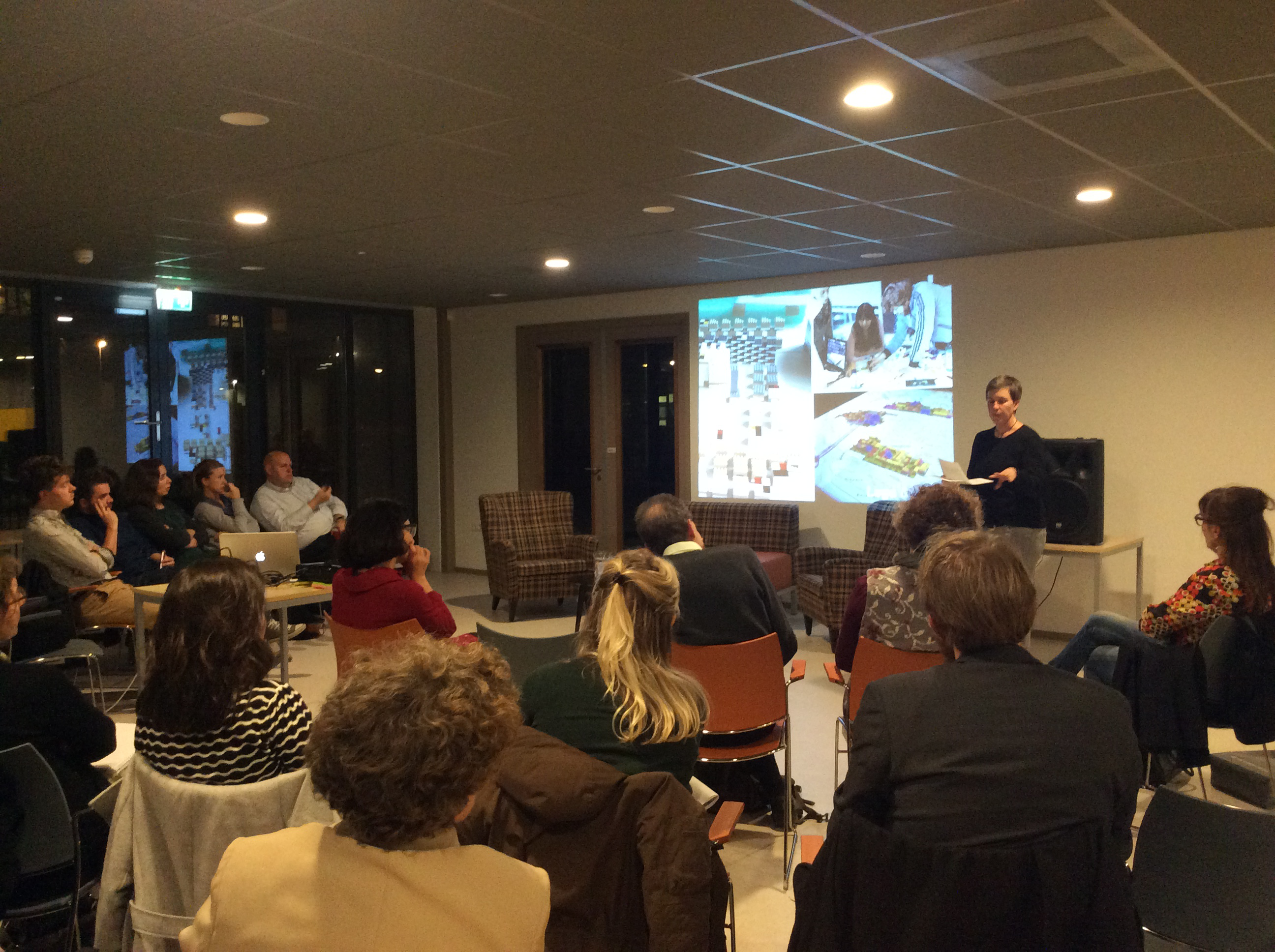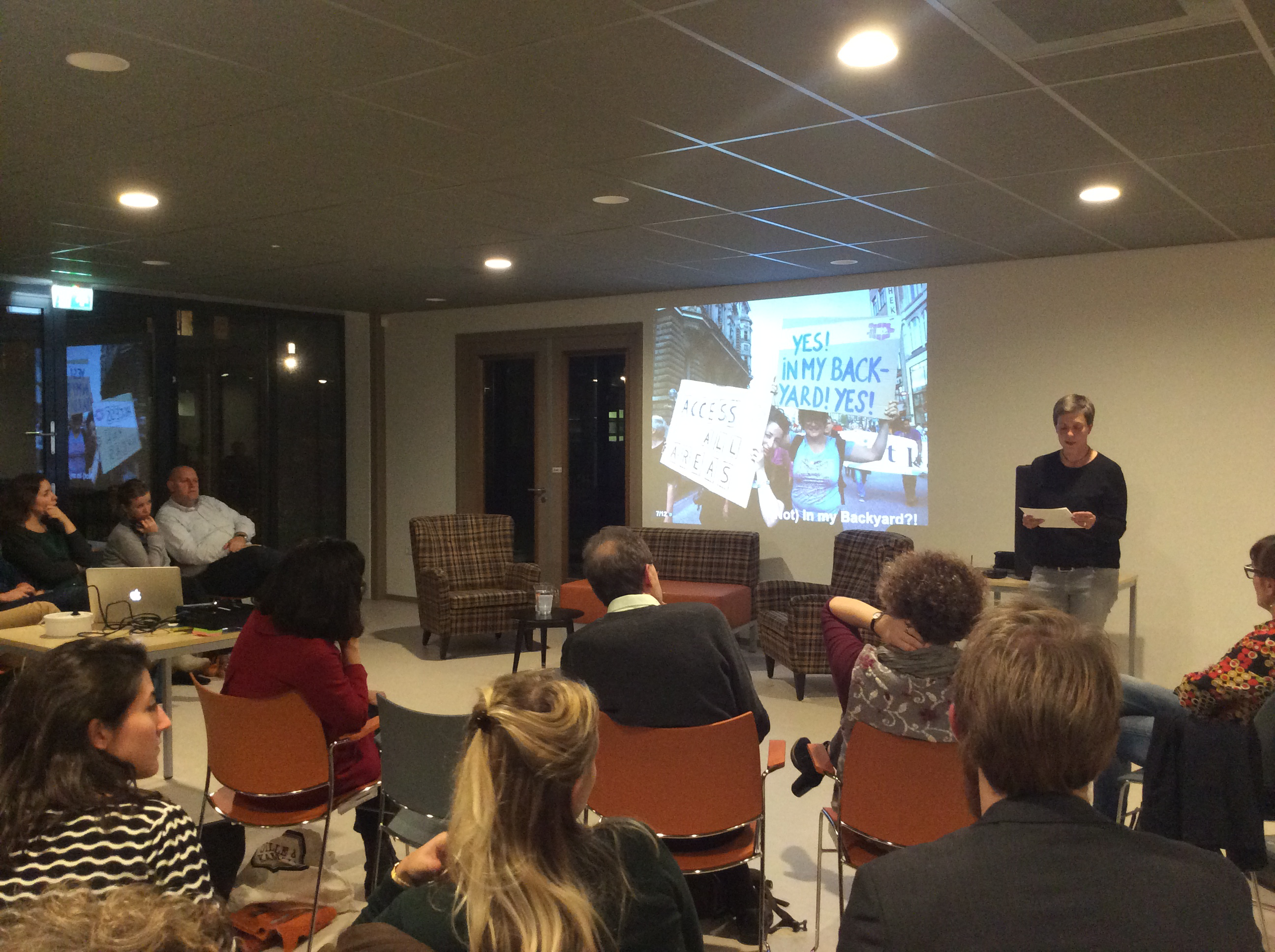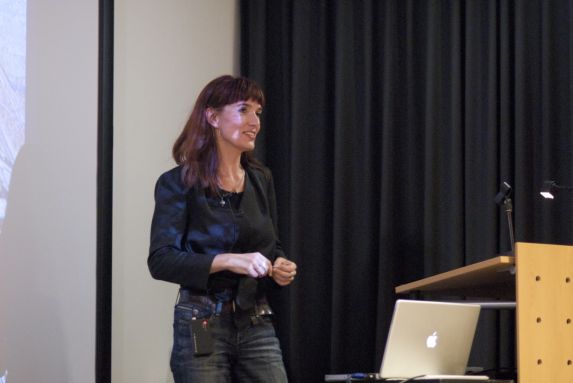Games for Cities
#2Inclusive City / Utrecht
Partners:
Migration is extremely complex. The so-called “refugee crisis” is in the spotlight of the news, and frequently emerges in daily conversation. In fact, it is only one (relatively small) part of a much broader phenomenon involving global movements. Migration is a permanent and growing phenomenon and 21st century cities must be prepared to creatively and reflexively adapt to unpredictable population flows. It is too easy to dismiss this as a temporary situation that is unique in cause. We find it only possible to adequately address the rising number of refugees as one symptom of a broader problem: “the lack of flexibility and absorption in our cities”.
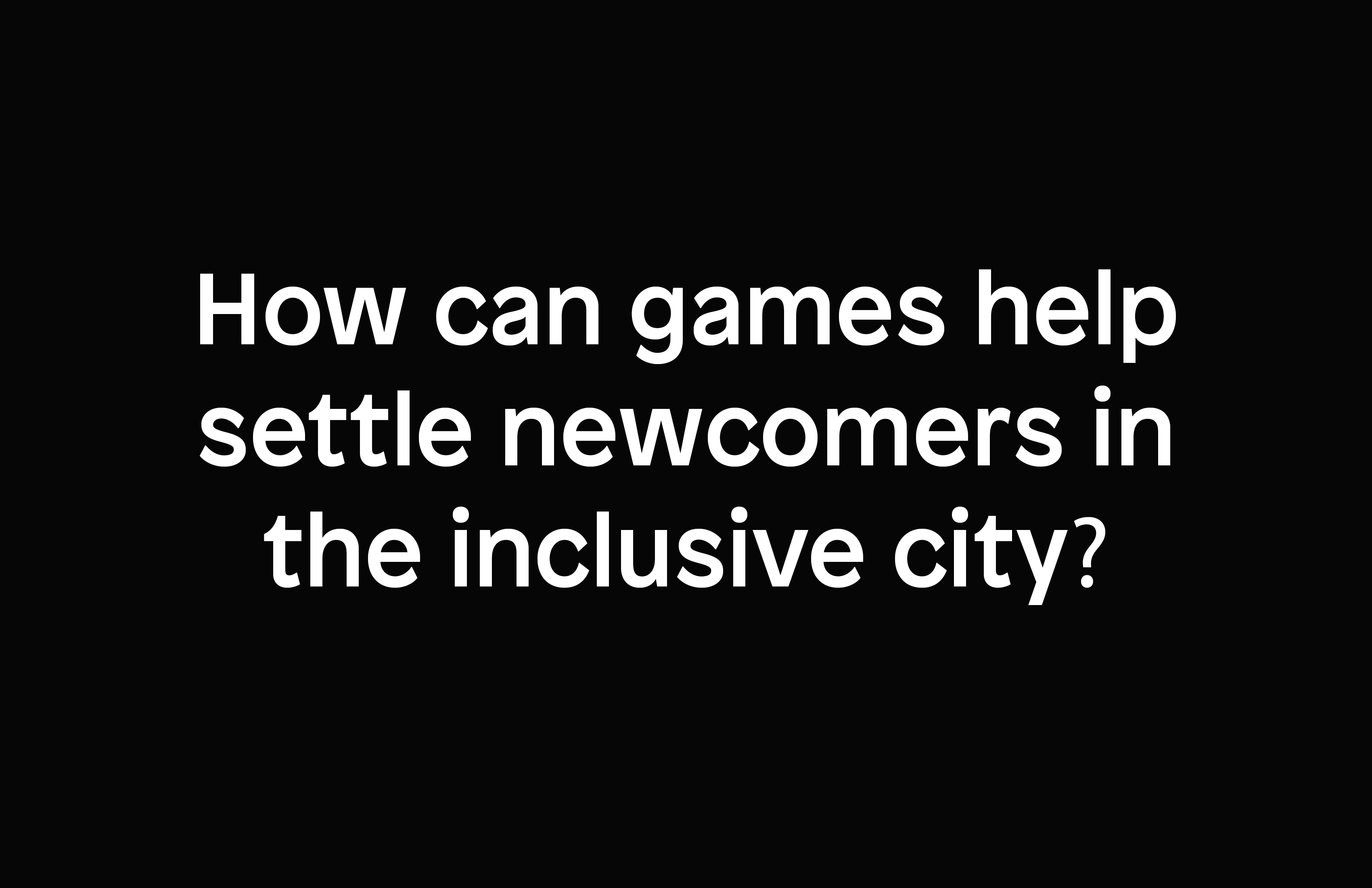
This is also the way ‘Games for Cities’ joins forces with the City of Utrecht and wants to address the issue of migration: as broad and inclusive as possible. It therefore does not only concern refugees, but also the many other groups arriving in and leaving cities – directly or indirectly – to deal with migration-related problems. This would also include students, seasonal workers and expats, for example. In this, we also take into account existing local residents. What impact do increased migration flows have on daily life, and on the ability to provide good housing, training and employment, a sense of ‘belonging’, and security, for both current and new populations? In short, the central question of this cooperation will be: is it possible to devise an approach for integrating flows of human capital into cities, that is valid for all of the diverse groups in the city: Utrecht Inclusive City?
Setting the Stage, Overvecht
The City of Utrecht and Games for Cities are working towards an innovative decision-making and communication instrument. Overvecht, an Utrecht neighbourhood asking for special attention due to its social and physical composition, is the case area for this experiment. The document, ‘Overvecht, een aanpak tot focus en versnelling/ Overvecht, an approach for focus and acceleration’ documented in March 2016 by the City of Utrecht, clarifies four domains of attention for the neighborhood: Working on Employment, Living Together, Raising new Generations, and Working on Health. The report goes on to detail these abstract titles: how entrepreneurship can be supported in an area where unemployment is 30%; how to treat postwar housing blocks or public space, while keeping in mind that 72% of Overvecht comprises social housing; how to collaborate with insurance companies in Overvecht for preventive health care; and how to increase feelings of public safety by familiarising socially distinct groups? Beyond these local challenges, national and global questions around mass-migration also have their impact on Overvecht. Perhaps particularly more so in Overvecht than other places in Utrecht, larger numbers of fragile profiles stream in, due to the existence of affordable housing options. Also, newcomers will be subject to the challenges described in the ‘Overvecht Acceleration Report’. Is there a way to ease the existing spatial and social tension for locals while continuing to host new residents? Could there be an environment where new and old residents meet to understand each other’s expectations, ideas, and plans for life, and even find mutual help for one another? How could residents and housing companies – as landlords of 72% of Overvecht households – develop a mutual understanding about expectations and future initiatives? Is there room for closer collaboration between residents and housing corporations beyond the provision of housing?
Inclusive City Game
Potential solutions to these local and global challenges can only be found when existing communities and new Overvechters collaborate effectively. This includes the people who plan and implement projects for these groups, such as housing companies, local government, and NGO’s, who all need to find an interface for effective communication and problem solving. The Games for Cities program in this regard fits in well with the ambitions of the ‘Overvecht Acceleration Process’. A major role for Games for Cities is using interactive urban design techniques for articulating and accelerating communication between the diverse stakeholders present in Overvecht. Beyond diversity in socio-economic and ethnic backgrounds, a playful design platform can bring professionals and non-professionals together for collective decision-making. Nuancing existing policies with the contribution of non-professionals while increasing awareness amongst non-professionals about the existing policies and the ground for such policies can be achieved. For example, bringing housing companies, local government officials, and residents together can increase understandings around why newcomers to Overvecht are initially hosted by ordinary citizens. Further, particular expectations or initiatives of inhabitants can be heard by decision-makers and housing providers firsthand, which could improve and smoothen the implementation of policies and projects.
For the Overvecht experiment, Games for Cities will develop a city game that will accelerate interaction and engagement between various stakeholders. This will help to understand current and historical realities of the neighbourhood through residents accounts, while working towards an inclusive future with new inhabitants. The aim is for a serious and playful process that involves representing the neighbourhood both spatially and socially. Imagine the construction of mutual agreements and partnerships about the physical use of public spaces such as parks, or information concerning the availability of housing, the encouragement of entrepreneurship, the exchange of skills between residents, or simply the acquaintances made across the game board. All of these could contribute towards decreasing tension between various social groups.
January 2017, Launching the Inclusive City Game in Overvecht
Currently, the Games for Cities team is visualising accurate local data about working, living, safety and health in present Overvecht. This way, debates and decisions in the game can be well-informed. As the game will be played by real stakeholders, there are tangible action points in four domains, as addressed by the ‘Overvecht Acceleration Report’, which are the expected outcomes. Games for Cities will organise the development of the city game through various events using the formats of a game jam, and a talkshow event. Various designers and experts in the field will be involved in this process. The Games for Cities program, initiated by Play the City, is the responsible party for running the development and implementation process in Overvecht.
In the interest of maintaining depth and quality in conversations, we propose an environment where a maximum of 40 participants can join a session. For the inclusion of larger numbers, a long term integration of the platform into the neighbourhood – a permanent ‘Situation Room’ – will be built to host future sessions. With overlapping players of interactive sessions, one can expect to establish some continuity between past and current stakeholders engaged, and in the relationships and partnerships constructed. To exemplify, The City of Almere hosted ‘Play Oosterwold’ in the shopping centre for two years, where over 50 sessions equipped 1000 participants with an understanding of the future ambitions of Oosterwold. For the Overvecht case, we propose a similarly long-term track to ensure the engagement of a considerable number of players.
After developing and delivering initial game sessions in Overvecht, Games for Cities will train local game masters to run future sessions. Game masters can be volunteers from both local and new residents, as well as committed individuals from housing corporations or local NGO’s that are active in Overvecht. In this respect, the City Game will serve as a decision making tool for the neighbourhood.
Competition Open Call:
In an open call, the Games for Cities program invited individuals and firms to submit their visions for managing migration, and for how gaming methods can help cities to adapt to these unpredictable changes. At the same time, city decision-makers are encouraged to explore gaming as a potential method for improved city-making. Winning entries will be invited to work with the Games for Cities team over a 3-day period to develop a city-game that puts their vision for managing migration into practice. How can we design and implement games for settling newcomers, and for accelerating processes of integration with local residents? This invitation was open to both local and international applicants who could express their visions on migration through a game format. Entries included both technically- and non-technically-oriented ‘designers’ from technologists, social scientists, and game designers, to general city enthusiasts. Each of the three selected winning entries will receive an amount of EUR750 to cover their travel and accommodation expenses. This includes their involvement in a game workshop event, publication of their concept, and extensive international promotion via Games for Cities’ own channels.
We are happy to announce our three winning entries for the migration challenge competition!
In no particular order, they are:
The team of Ohad Soloman and Ron Sabaag with ‘Playing-Planning’;
Maria Tome Nuez with ‘FromHumanToHuman’;
and the team of Stephanie de Smale, Koen Leurs, Rianne Dekker & Marij Swinkels, with ‘We Connect’.
Thanks to everyone who entered the competition and took the time put a game prototype together! Your enthusiasm gives us great hope for the future of urban games!
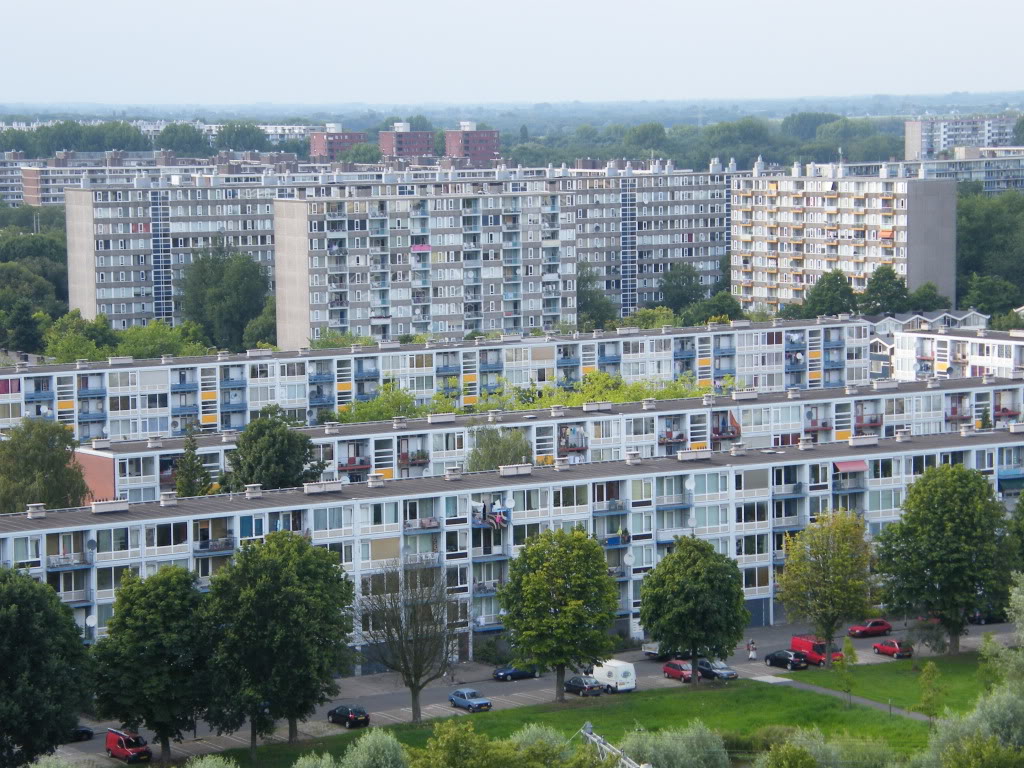
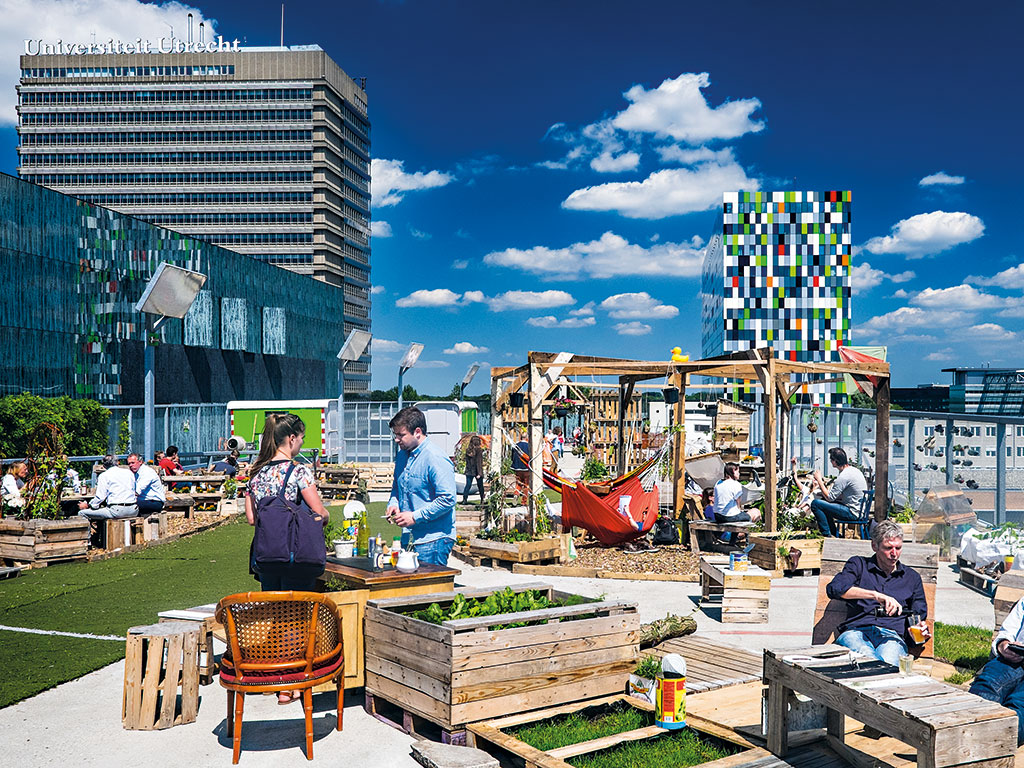
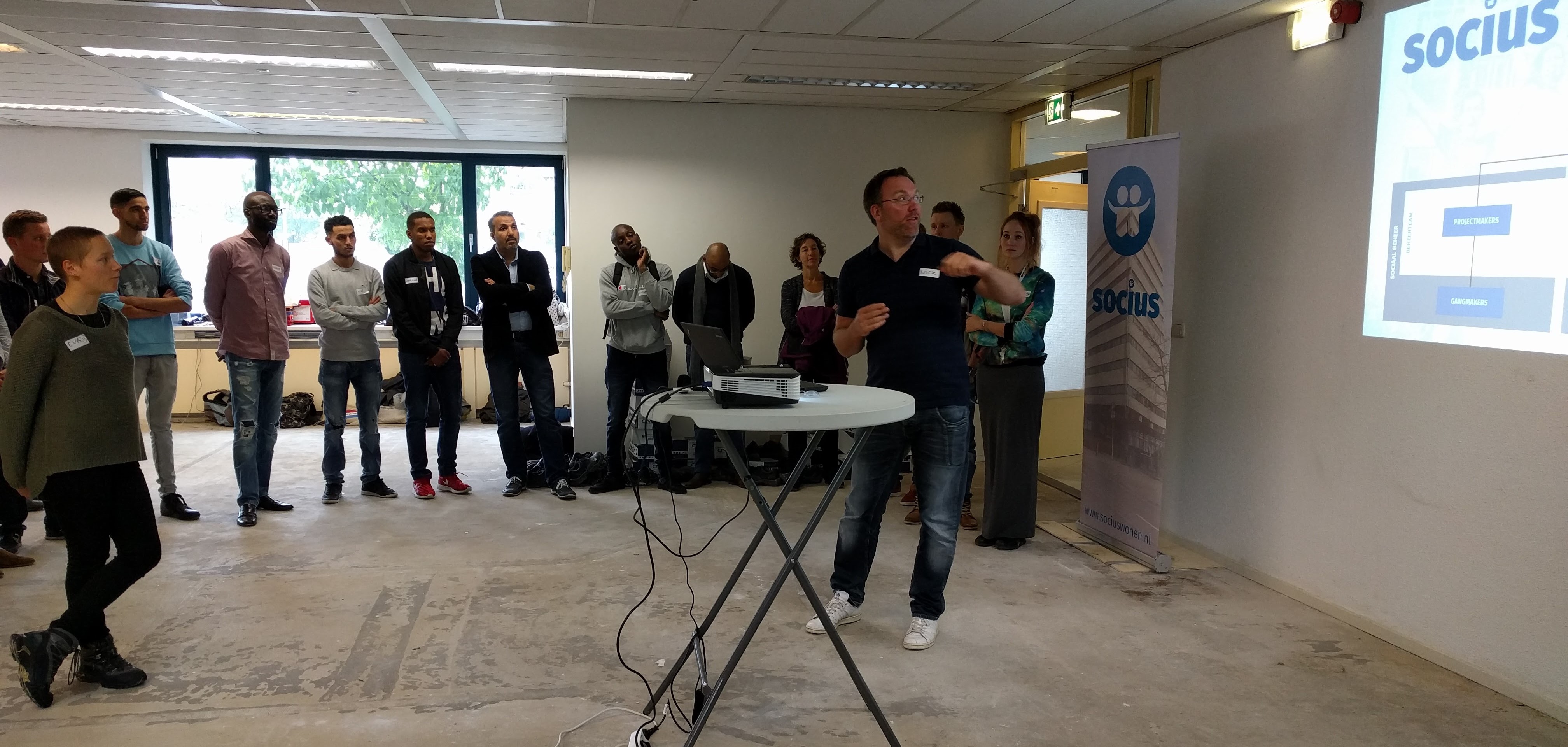
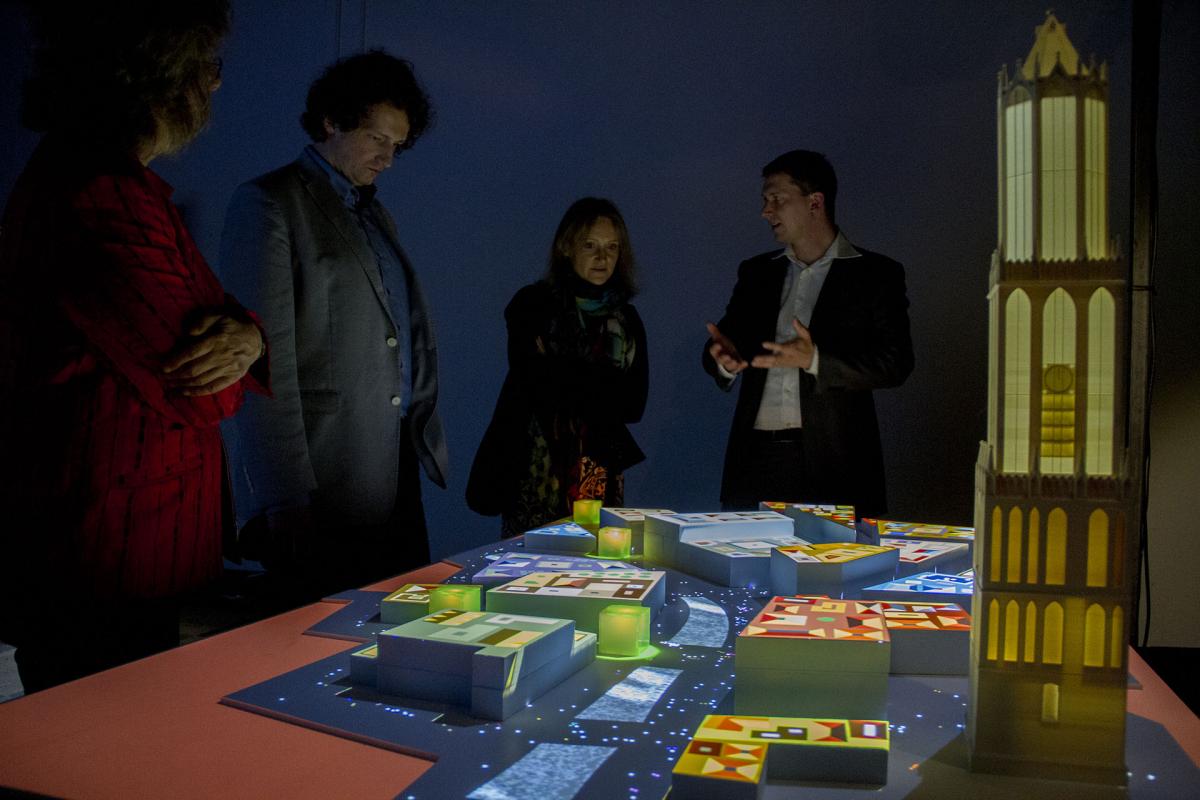
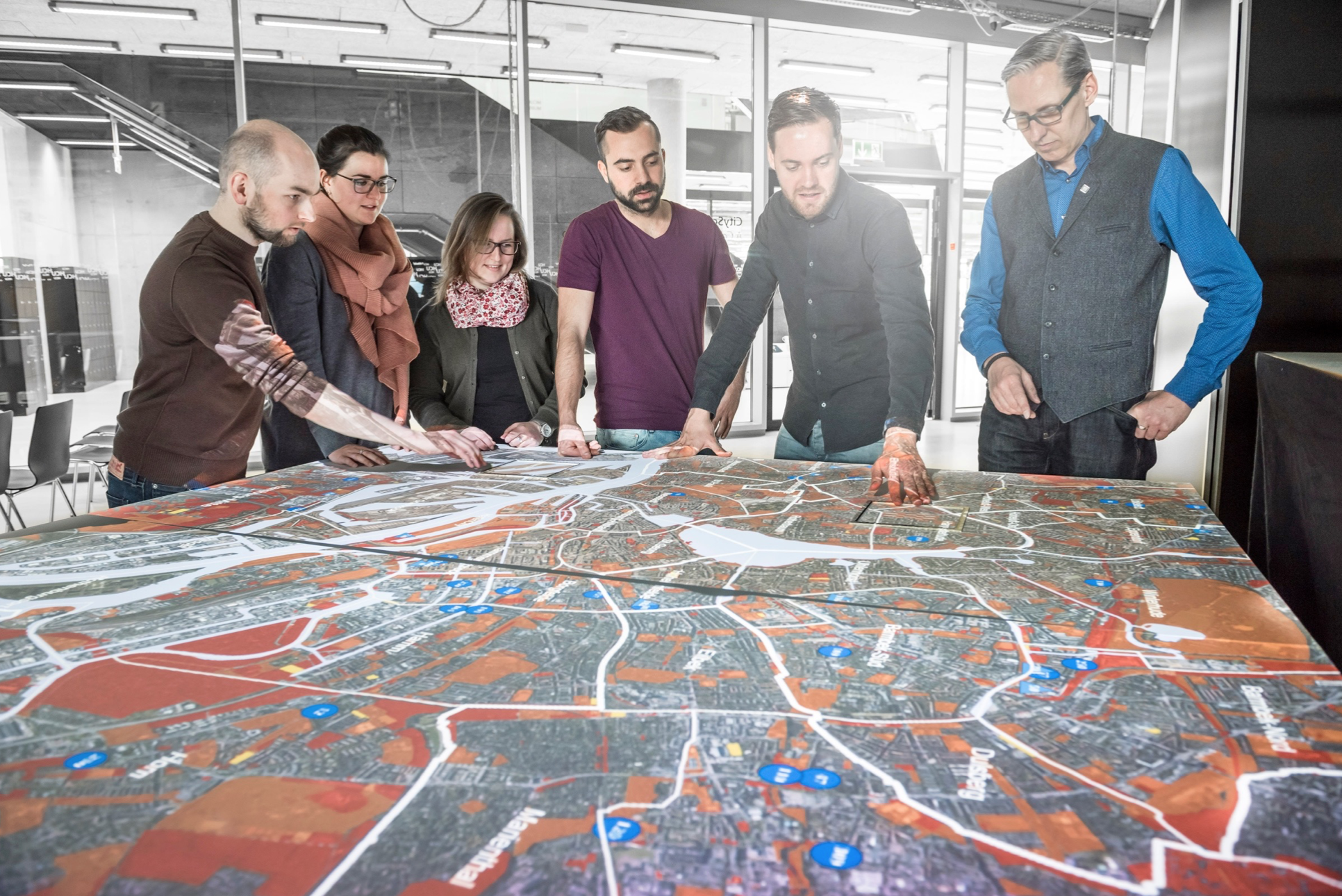 Photographer: Walter Schießwohl
Photographer: Walter Schießwohl 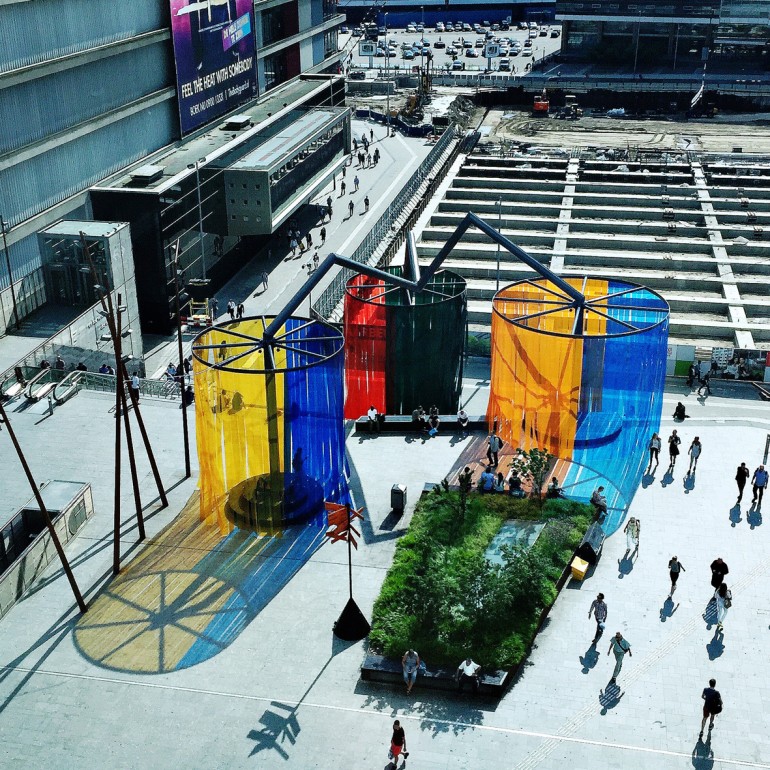
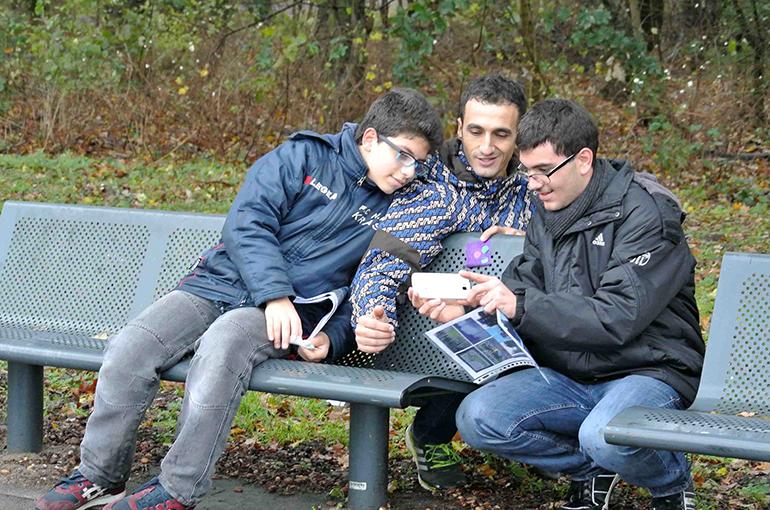
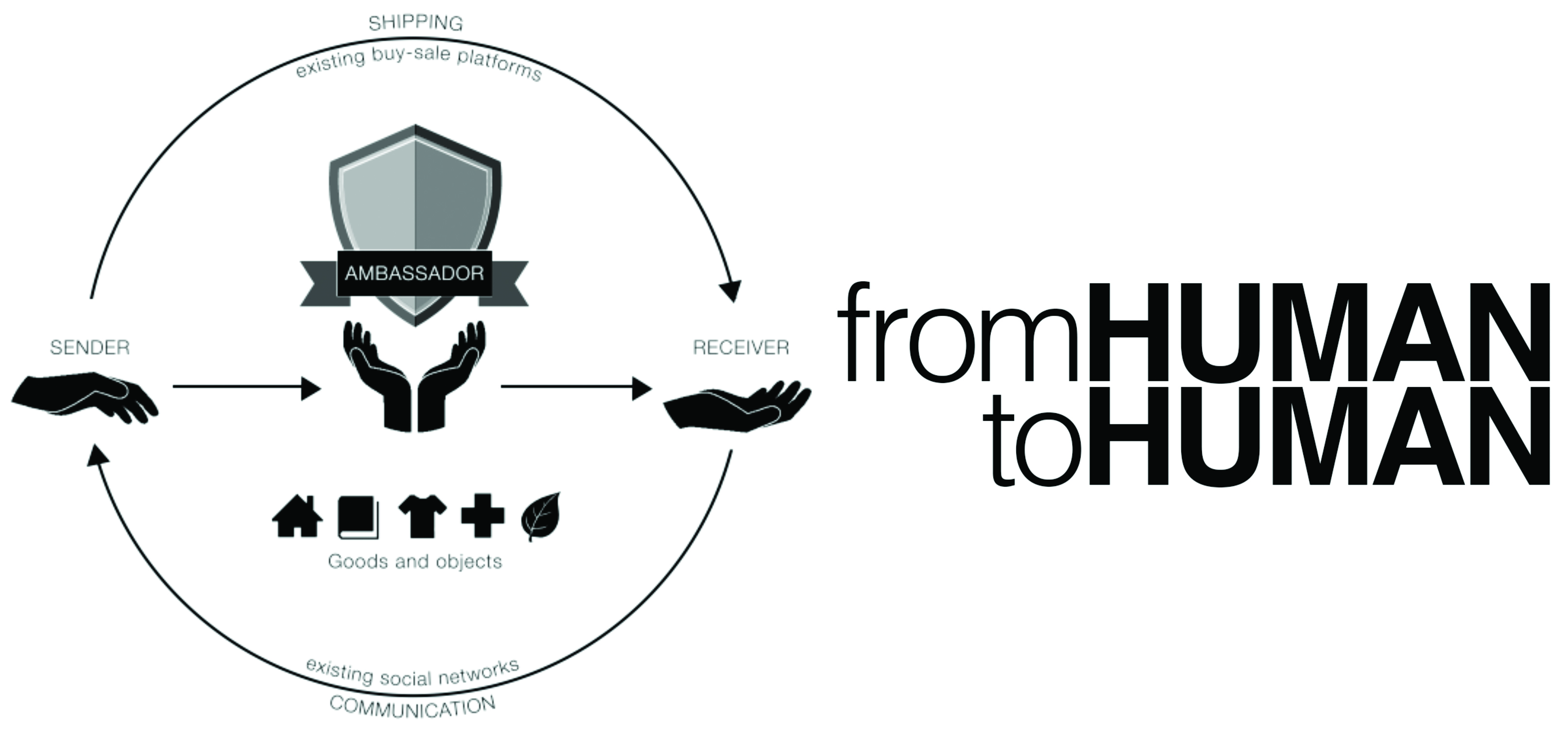
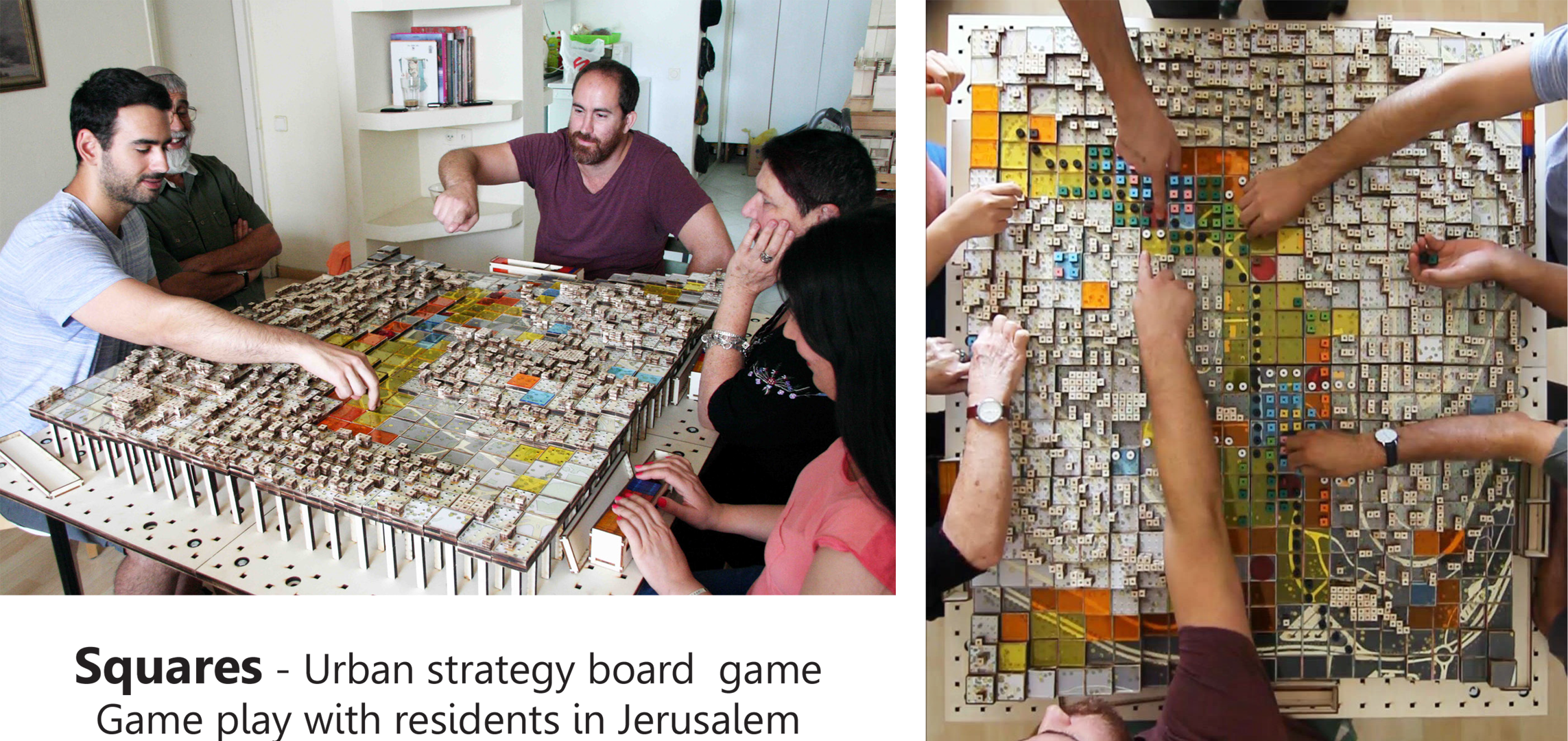
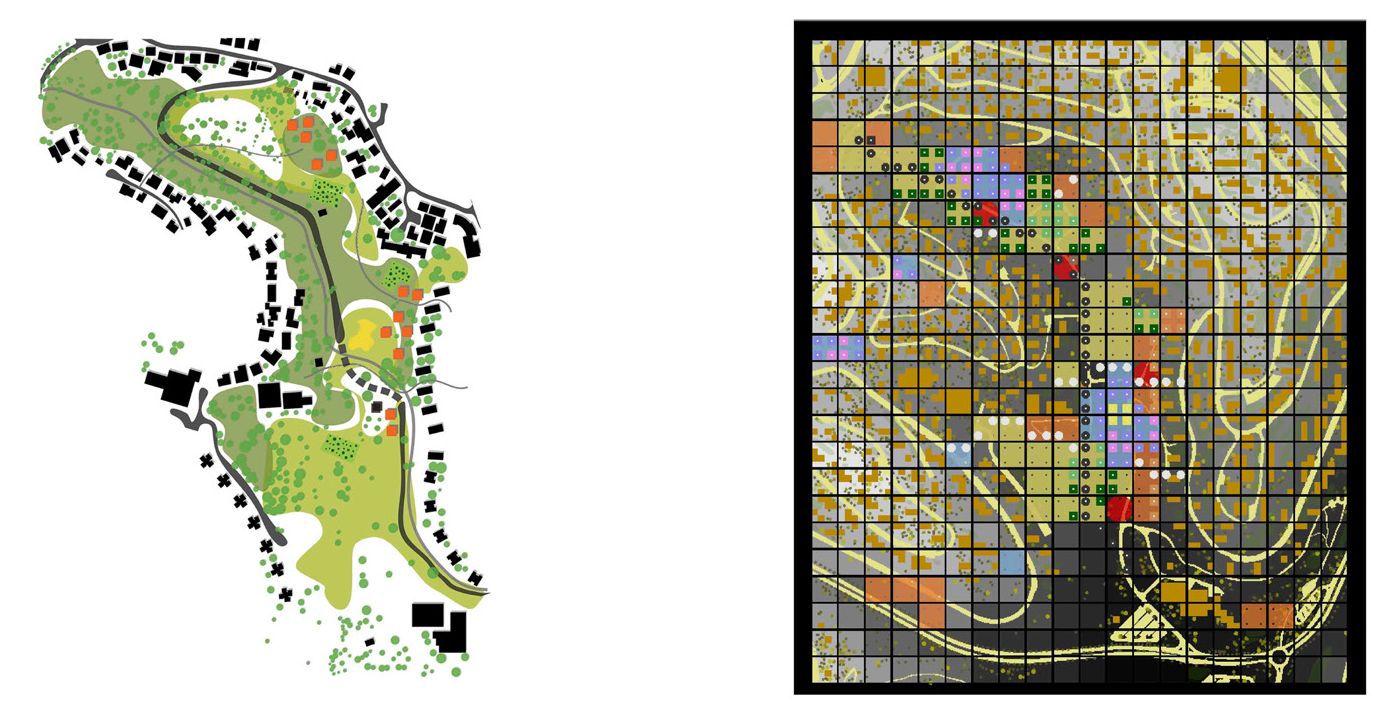
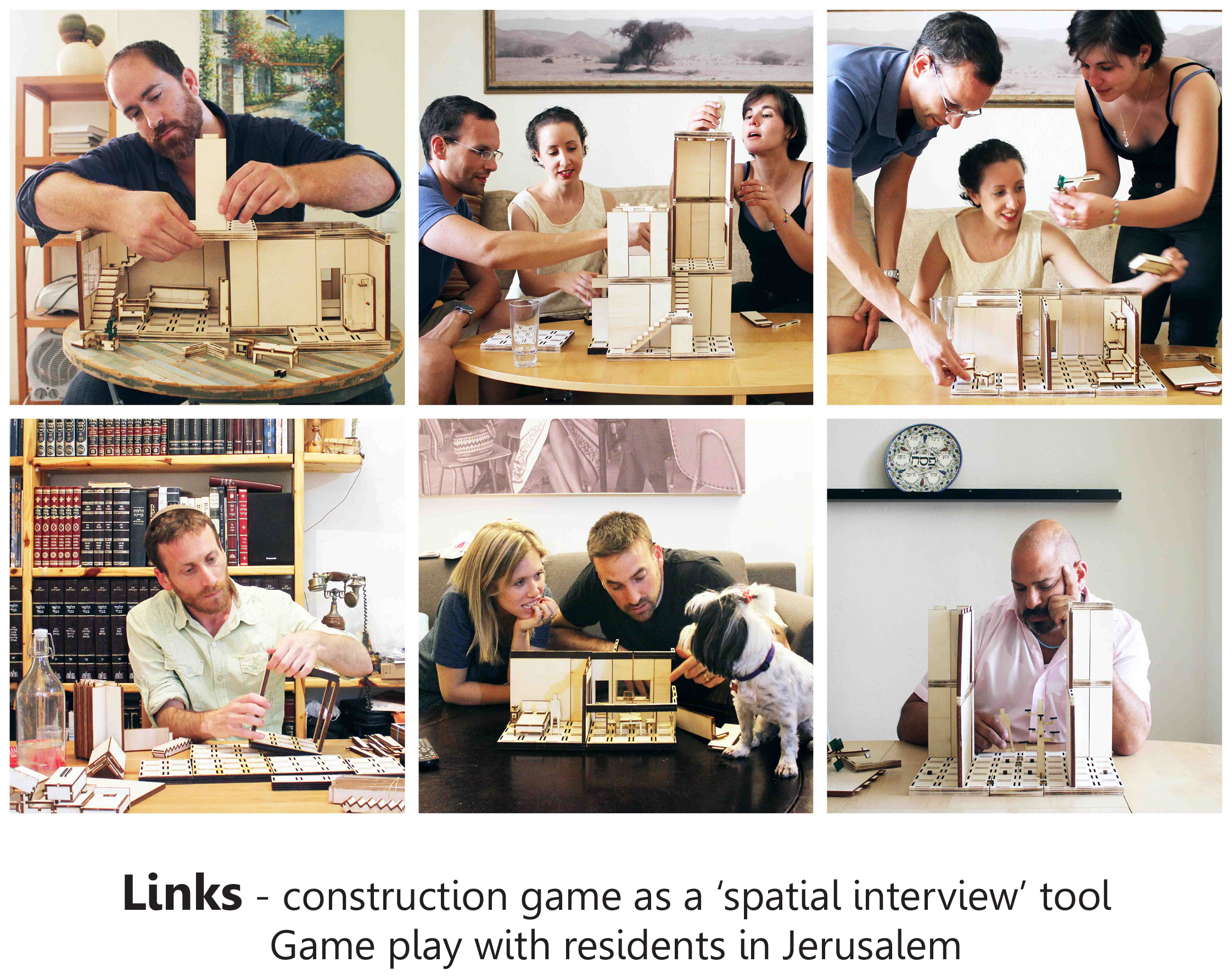
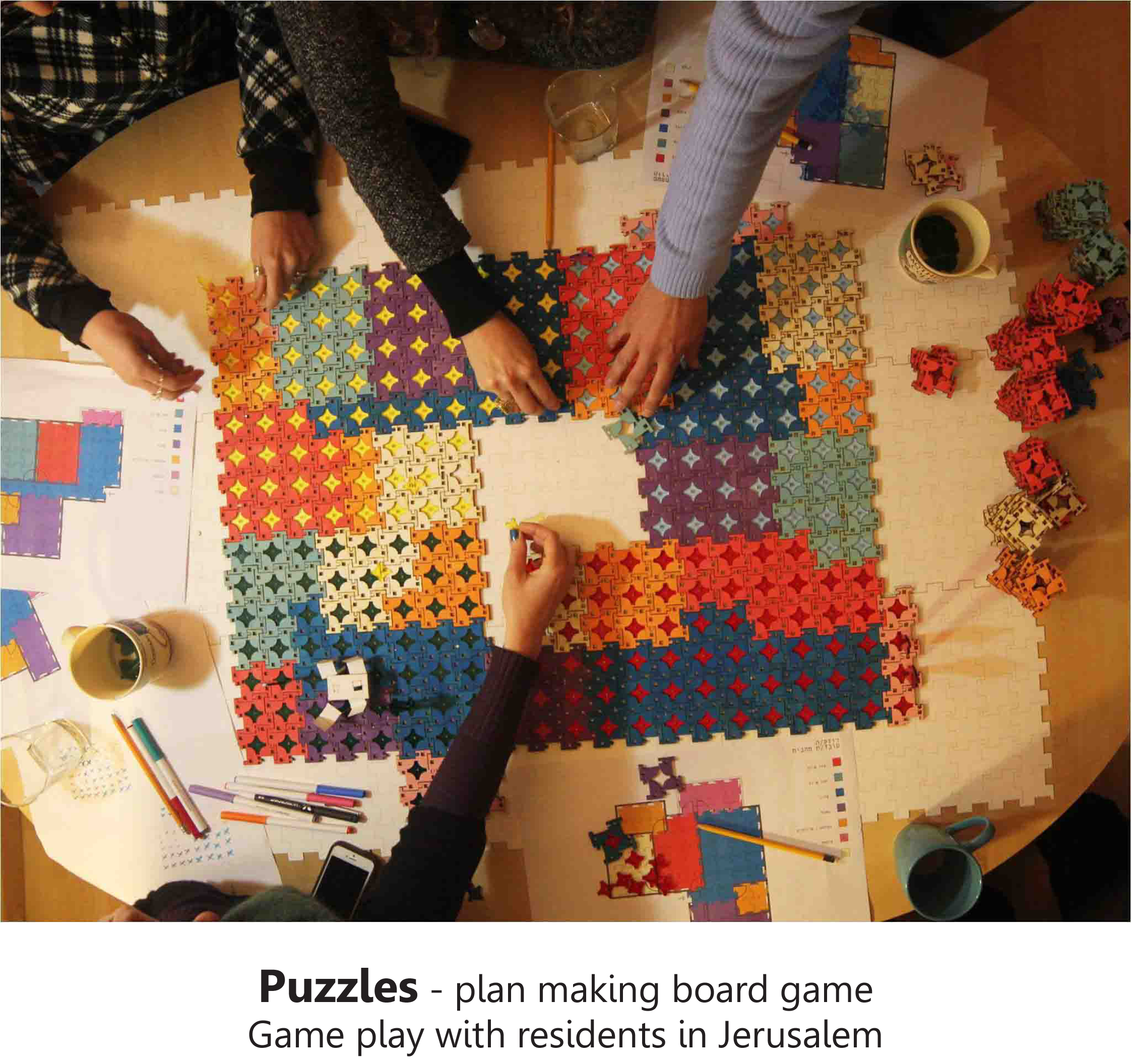
Event #1
The Inclusive City Game Jam
The Inclusive City Game Jam brought together a team of designers and researchers who worked together with a diverse range of local residents to create a prototype for co-creating affordable and inclusive living spaces. This took place over an intense 48-hour workshopping process, where 3 different but connected game prototypes were developed. The challenge now, is to knit the successful elements of each game together into one coherent game that can facilitate integration and the emergence of more rooted networks in Overvecht.
The 3 game prototypes are:
1. Activ-Echt
2. Discover Overvecht
3. GainBoard
1. Activ-Echt is a game that engages residents towards being more ‘active’ in combatting the social challenges in their neighbourhood. This could include for example, a boy that is mocked for being overweight; or concern that your daughter’s classmate was not vaccinated against measles. How should one manage these personal concerns and anxieties? Often, the police is called in to deal with rowdy groups of teenagers on the street, even though no crime has been committed. How can we relieve police from these distractions to their real work? How should residents deal with their neighbours who are playing music loud at night? This game is designed to be played in a short timeframe, and with very few game mechanics, ensuring that there are no barriers to entering the game. This could take place in the hall of the lift, the only “common” place of the flats. Neighbours discuss these issues with one other, while making use of the existing (given) data in an order to quell their concerns. While initiatives that improve those situations of fear or unhealthiness are already present and functioning, they are often not visible or well-known. Players are provided with this information during the game in an easily digestible format, while also having the freedom to come up with their own ideas or actions in the game. Players then suggest various possible actions that could help with managing the concerns raised. For example, for the child who doesn’t feel safe walking home alone at night, a neighbour who walks his dog every evening might be able to alter his route in line with this child’s route. For the overweight child who is mocked by his friends, a neighbour might suggest that while him and his friends play football in the park, the child could join them for some fun and exercise. This game is short (no longer than 30mins) and played by only 4-6 persons each time, however, the collected data (both issues and actions) is retained in the game, contributing towards a maturing game that is improved purely through the action of playing. The game aims to stimulate residents into coming up with creative ways of tackling certain issues in their neighbourhood with targeted actions. This could be an individual act, a collective protest, a social initiative or even the birth of an organization, giving actionable answers to complex social issues. Once the game has been going for some time, there could be an awards evening for those individuals/groups that developed the most creative/successful initiatives, perhaps granting them with the support systems needed to develop their current actions further.
2. ‘Discover Overvecht’ looks at Overvecht with fresh eyes, both in terms of newcomers, and more rooted local residents. To enter the game, players are asked to bring an object to the play session that they regard as a ’treasure’ in their neighbourhood. Play then proceeds with players interacting with the various initiatives currently happening in their neighbourhood, which are located on the gameboard, as well as with other physical resources and the dynamic set of human resources that players bring to each game session. 10 Teams of 2 pair up around the gameboard, with each pair in charge of one of Overvecht’s districts. Each team then markets their district to the other players around the table, as the experts/mayors of their district, who must attract human resources into settling there. A dynamic algorithm then evaluates both individuals’ connectivity, and the attractiveness of each of the 10 Overvecht districts, based on their ability to both attract and accommodate the human resources gathered around the table. In this way, players are encouraged to learn about what’s available to them in Overvecht through an open-ended learning process, and to become the informal experts and teachers of their district to other players. This has potential real benefits for those who play the game, learning about the resources available to them, as well as forging networks in the game that have the potential to initiate real networks that build onto those established in game sessions.
3. GainBoard takes the approach that, although many initiatives and support systems currently exist in Overvecht, many of these services are under-utilized. On the other hand the local population of Overvecht could really use and contribute towards some of these networks. How do we make these initiatives and pathways to work visible for those who need them. Players enter the room and fill in their “passport’s” with their priority ‘needs’ and ‘offers’. These passports are then shuffled up and redistributed by the GainMaster, with players assuming their new roles in the game. Each player then has a chance to place their colour-coded ‘pin’ on the board where they feel their strongest connection to an initiative, along with a majority of their ‘time-tokens’, which is representative of the proportion of their time that they’re willing to invest in the initiative. In the second round, players place their remaining time-tokens on the board, collaborating with other players around the table. Players must try to satisfy both their needs and their offers while ensuring that each initiative that they’ve invested time in receives its full quota of 10 time-tokens required to be successful. Players then receive their own passport’s back, and prejudices are exposed, as the person with bicycle maintenance skills is in fact a 20 year old woman and not the 35 year old man standing opposite you. Players then connect their pins to each initiative invested in, using luminous thread, while reflecting on the time investments made on their behalf. During this round, players are forced to negotiate their personal and shared space, making room for one another. The lights then go out, and the nodes and pathways created by players become visible networks that each player can pursue in real life. Each player receives a print-out on exit, with the contact details of any potential networks generated in the game.
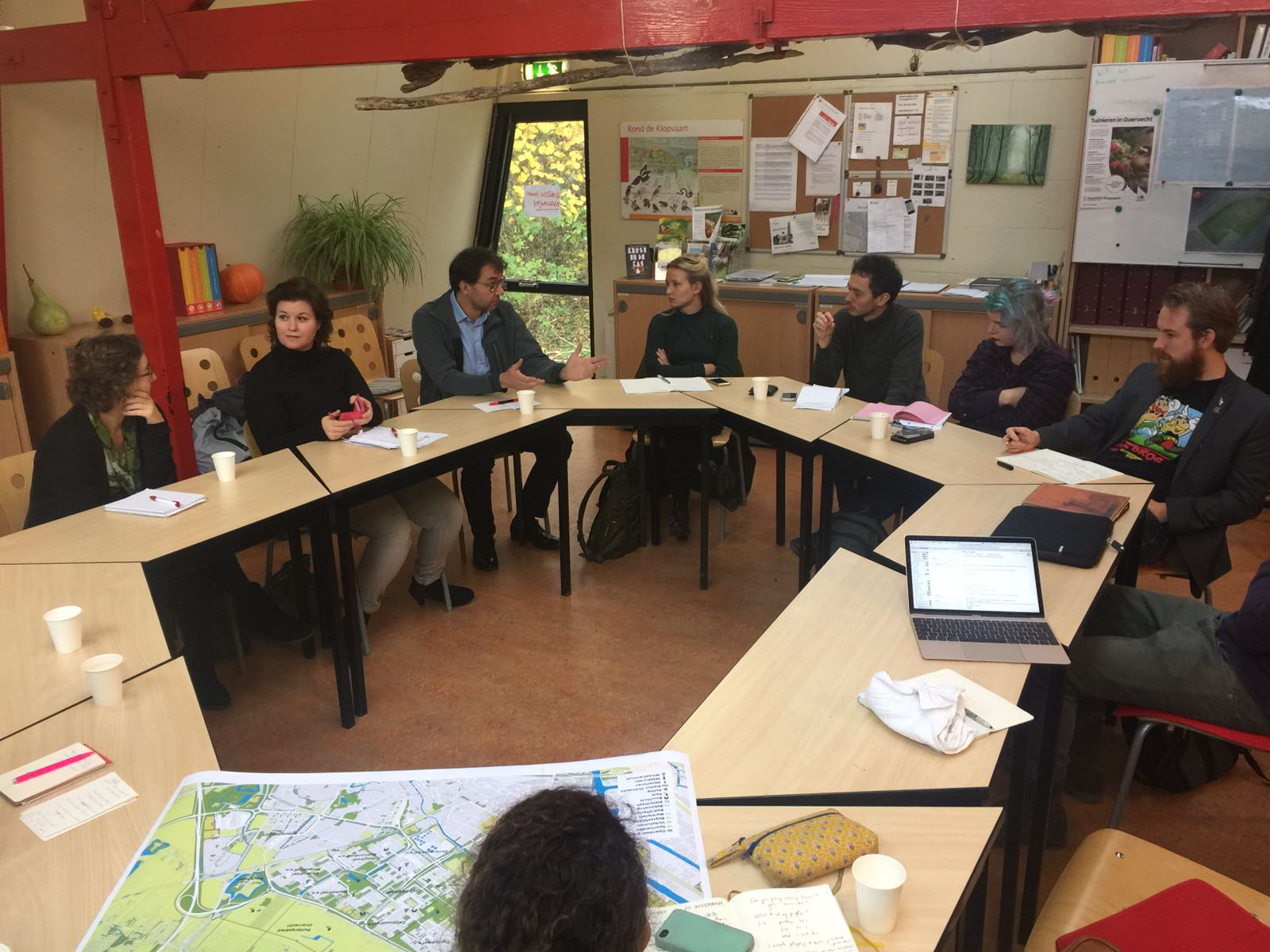
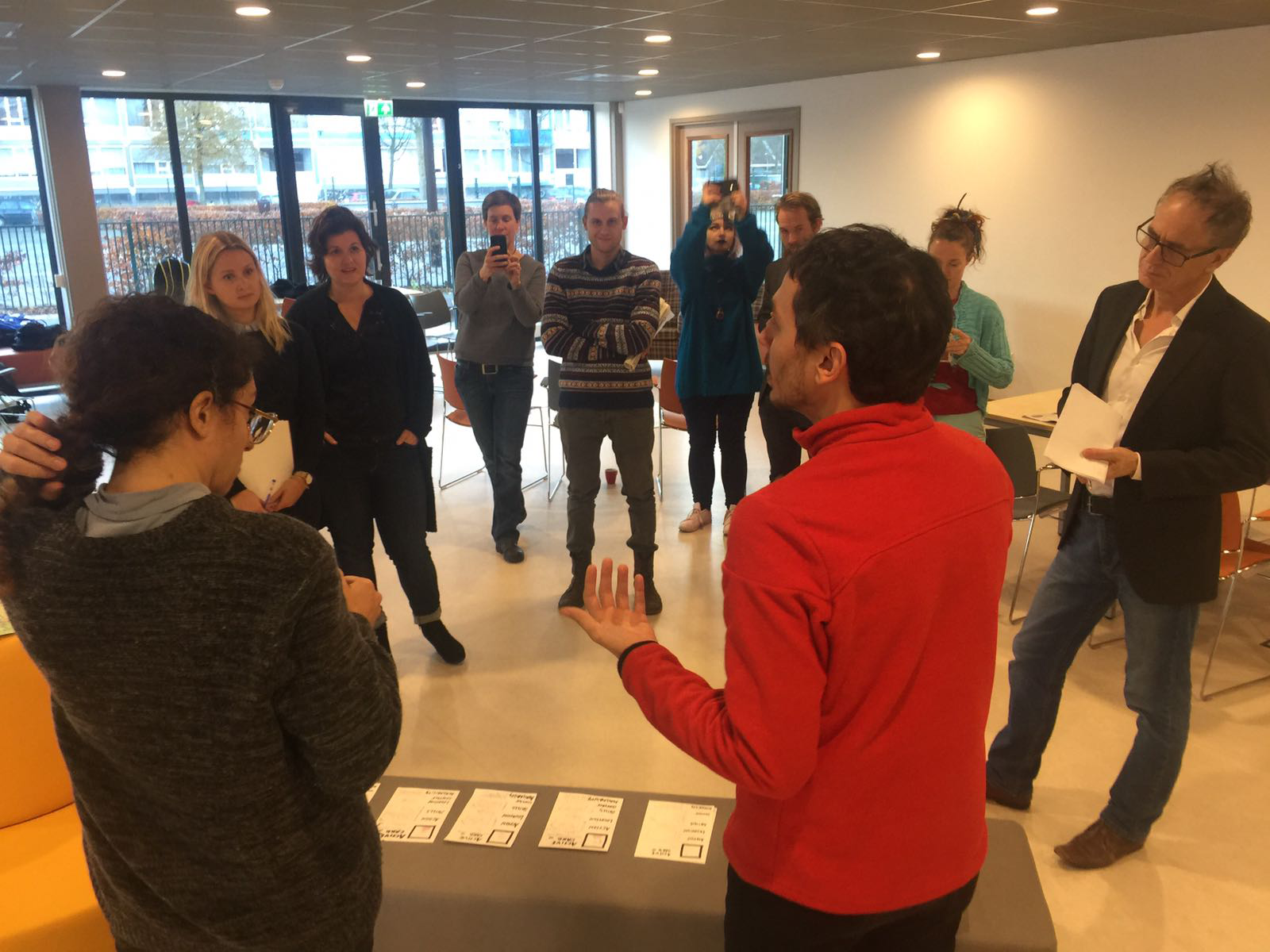
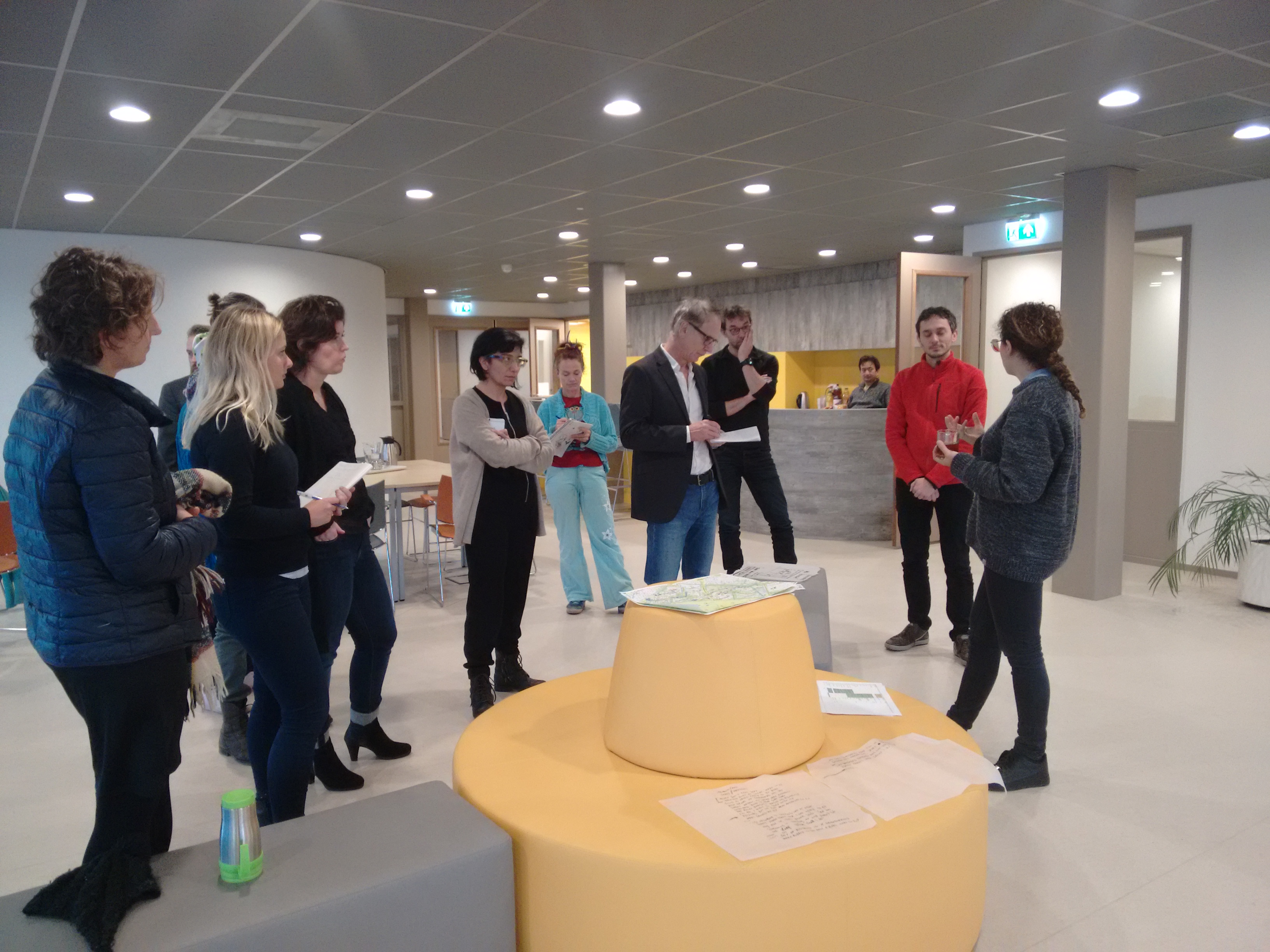
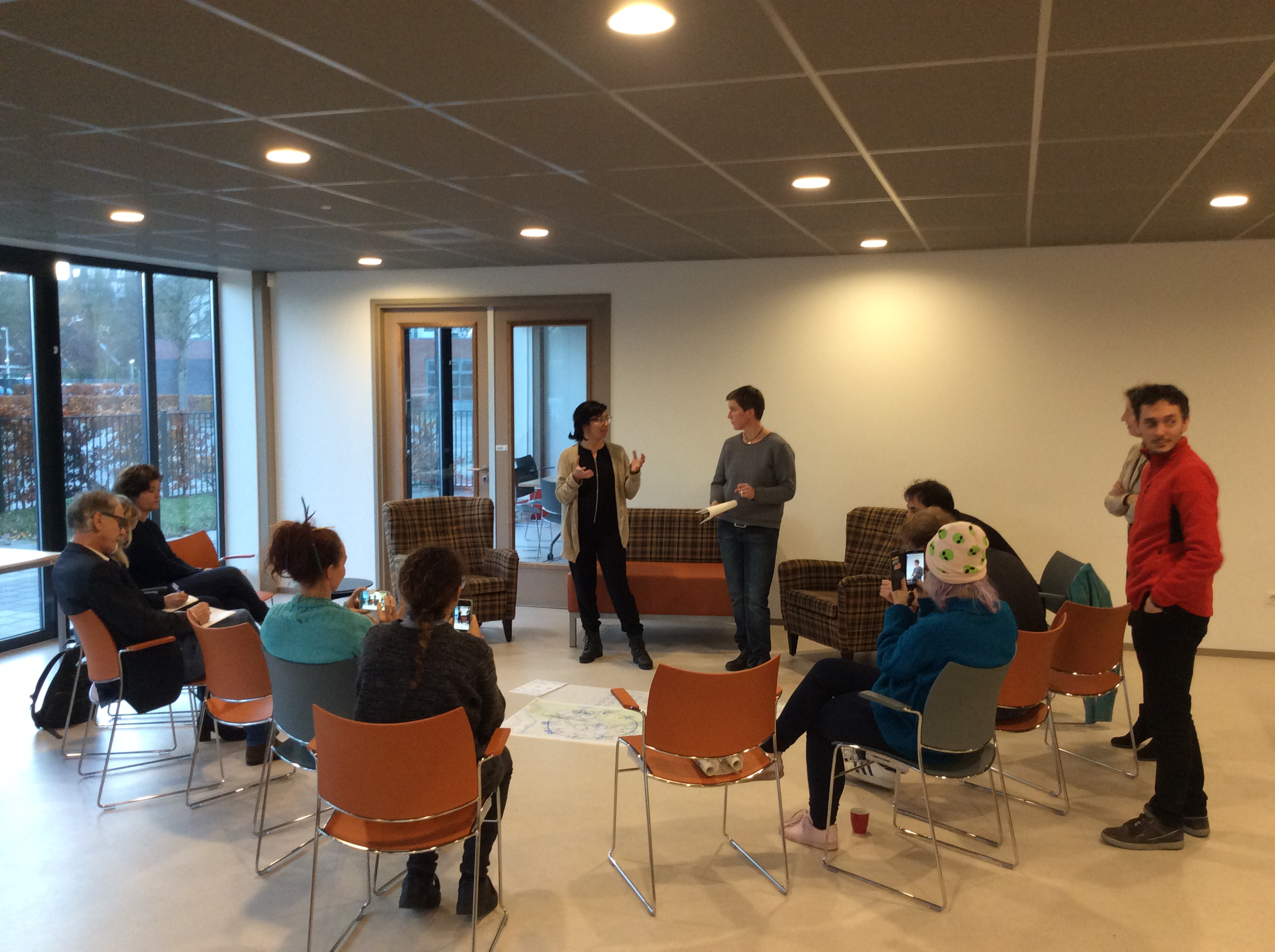
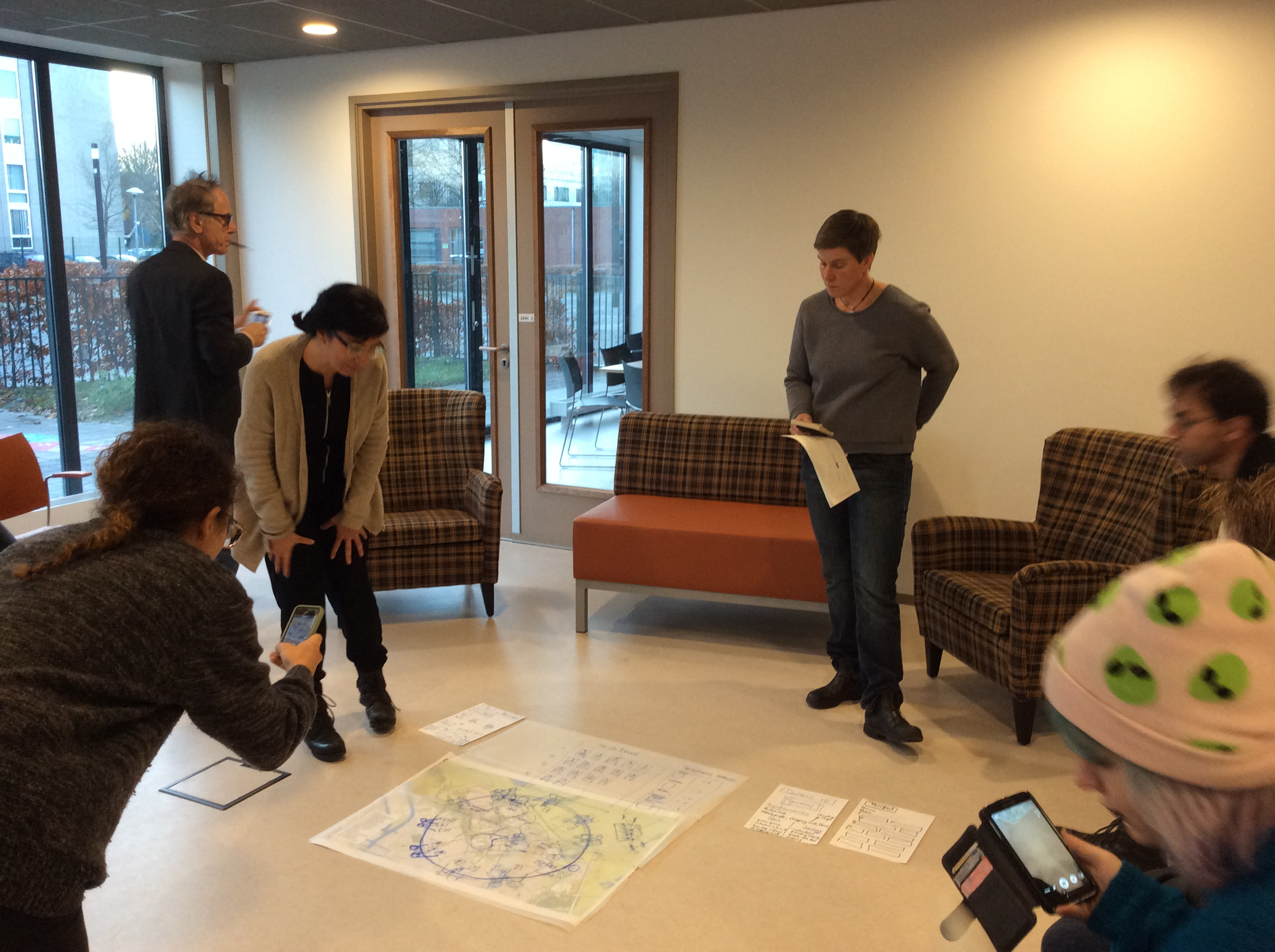
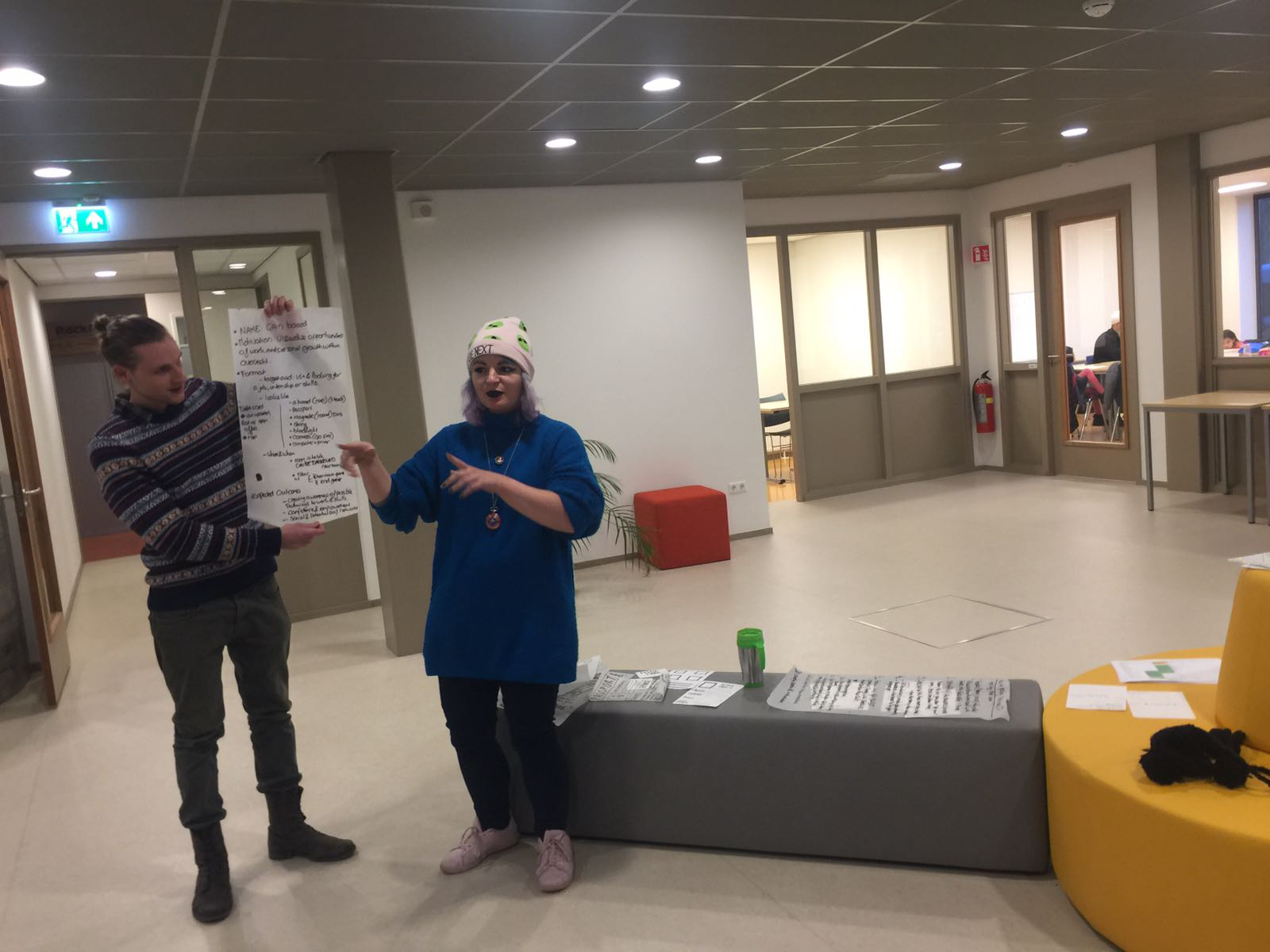
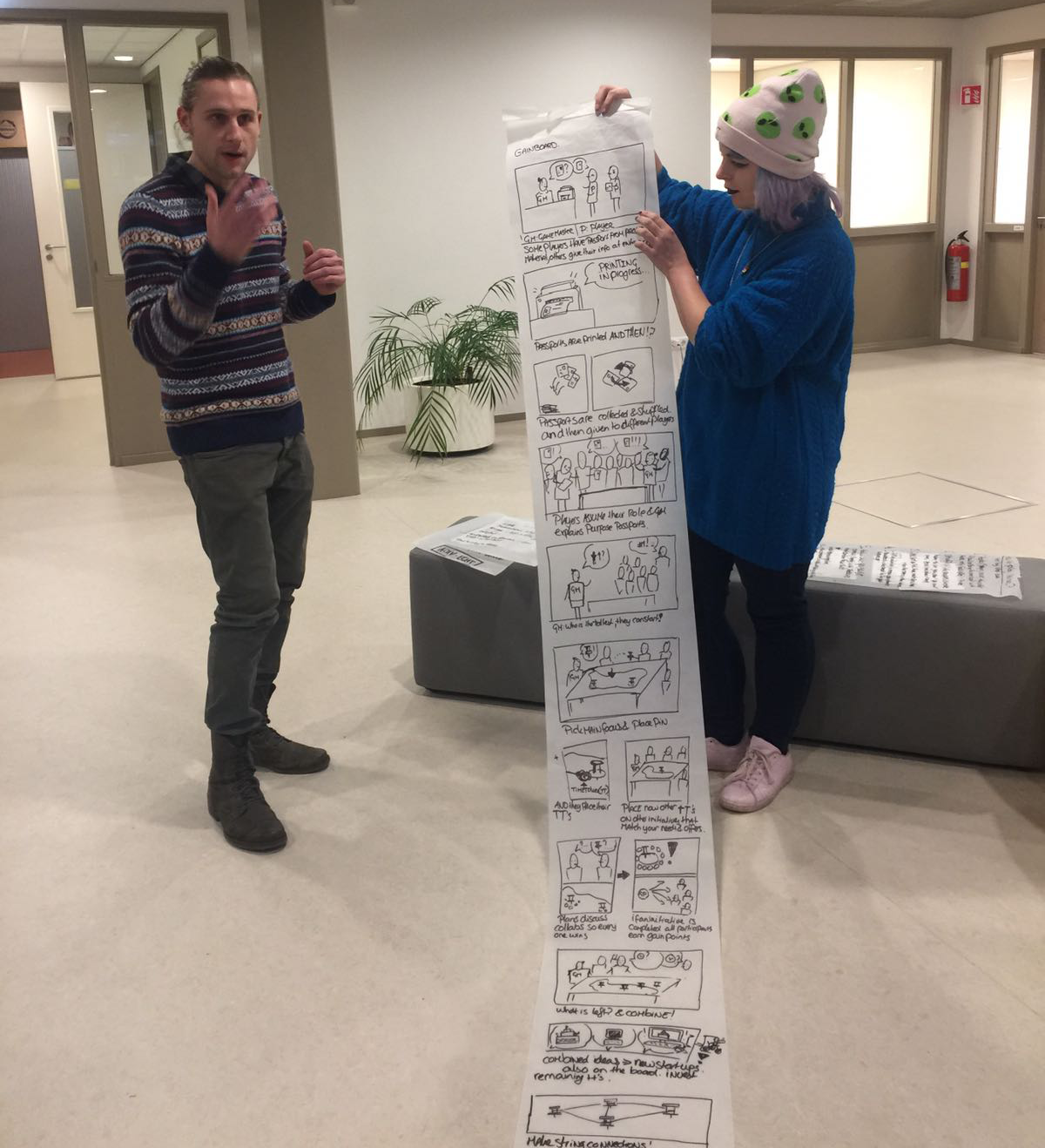
Event #2
The Inclusive City Game Talk Show
Playing is as old as our civilisation, and so are cities. Using games as an informative and interactive method for city-making, however, is relatively new. ‘Games for Cities’ is a public research program initiated by Play the City, and various partners including the City of Utrecht, to debate one of the most burning issues of the 21st century city: mass migration. As participatory urban methods, ‘city games’ both inform and activate multi-stakeholder processes. Knowledge of this mechanic is becoming more widely accepted: in late 2015, the mayor of Hamburg hired a game – called ‘Finding Places’ – for identifying temporary housing locations for newcomers to the city. Over 700 local residents in 34 game sessions proposed 161 different locations; 44 of these have been approved by the planning department, and 4 locations are currently under construction.
On the evening of 23 November, Nina Hälker, researcher at the CityScienceLab at HafenCity University in Hamburg; Ekim Tan, the director of Play the City and founder of Games for Cities; Michelle Provoost, co-founder of Crimson Architecture Historians and co-author of City of Comings and Goings, came together in conversation with engaged project managers in the City of Utrecht regarding the potential for City Gaming to be an innovative and effective city-making method, with a focus on Overvecht, an urban neighbourhood that is subject to a high influx of new residents. Dr. Michiel de Lange from Utrecht University moderated this discussion. Some local residents were also involved in the discussion, providing valuable input and feedback to consider in designing the game.
Michelle Provoost gave a fantastic presentation on the ephemerality of cities, and the importance of planning our cities to manage such dynamism. In her presentation, and in her article on the City of Comings and Goings, five principles are outlined for managing these fluxes better. This includes: increasing the quantity of government owned social housing stock; flexibility in housing programmes; awareness of context; decentralisation; and participation. Could games be one method for achieving these healthy urban transformations, and for enabling greater public accessibility insofar as understanding these dynamics is concerned.
We are happy to have had the opportunity to meet Nina Hälker, who shared her insight on the Finding.Places.Hamburg game that she has been involved with. This game utilized LEGO-tized anologue-computer interaction modelling to seek out appropriate spaces in the city for developing temporary accommodation for refugees in the city. See more about this game in our database. From this experience, Nina had many critical insights to contribute towards the question of how games can facilitate deeper levels of integration between newcomers and locals in Utrecht. A real strength of the process was the ability of the game to interpret complex urban planning ingredients, and spatial planning tradeoffs, and to relay this information in a more easily digestable form. The game enabled members of the public to interact with this information, and to make spatial planning proposals based on this. Here lies a powerful value of serious urban games in their ability to attract diverse groups around the same table through lowering the barriers to accessing and manipulating/‘owning’ this information.
Do you feel that the flow of people through urban systems and their unpredictable consequences concern your daily practice? Do you feel the need to work with innovative inclusive methods? Watch this space for updates on the progress of an integration game for Overvecht. If you have anything you’d like to contribute towards this process, please feel free to get in touch with us – we’re always on the lookout for new and fresh ideas.
